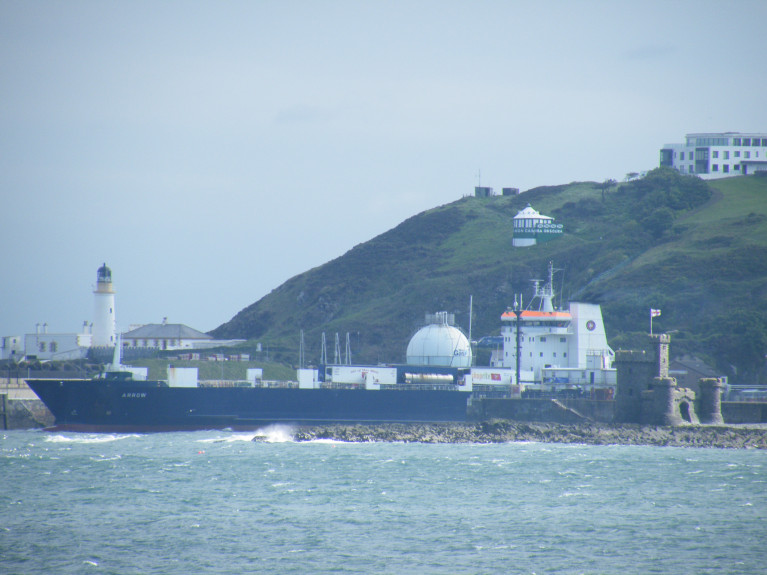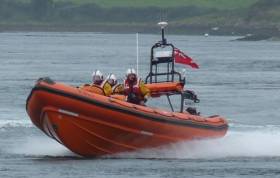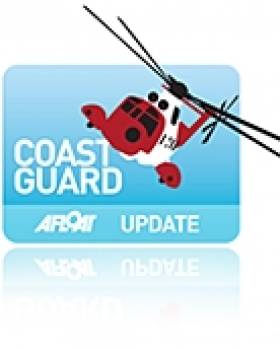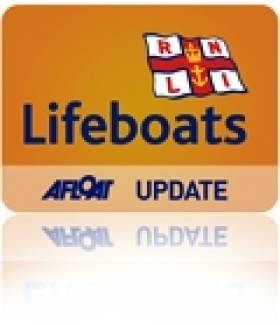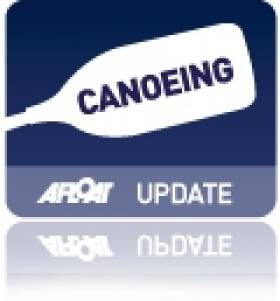Displaying items by tag: fog
Freight Sailings Added to Isle of Man Route after Weekend Fog Disruption
Ro-ro freight ferry MV Arrow has been brought back into service after fog disrupted weekend passenger services, the Isle of Man Steam Packet has said.
The move is designed to free up space on the Ben-my-Chree to get passengers "where they need to be" before Christmas, a company spokesman said.
Fog at Heysham port meant sailings on Saturday and Sunday were unable to dock and had to return to Douglas Harbour.
But some passengers have been criticised for verbally abusing staff.
BBC News has more including a comment from the M.D. of the Steam Packet.
Portaferry Lifeboat Rescues Three Lost In Thick Fog
#RNLI - Volunteers with Portaferry RNLI went to the aid of three men on board a 4m dory who had become lost in thick fog close to Ballyhornan on the Co Down coast on Thursday (9 June).
At the time of launch at 4.45pm, the weather was extremely foggy with very poor visibility, a Force 2 southerly wind and smooth sea conditions.
The three men had become lost in the worsening conditions and were unsure of their exact location. Rather than try and guess their location, they called emergency services for help, giving a rough position as somewhere between Sheepland Harbour and Guns Island, just off the Co Down coast.
Portaferry RNLI headed towards the men’s general location and at first passed the three men in the thick fog. On arrival at Sheepland Harbour, however, the lifeboat crew started to track back towards Guns Island.
By this time the men on board the lost vessel had called the coastguard once more to report that they had heard the engines of the lifeboat passing by, helping to pinpoint their location.
The lifeboat crew arrived on scene close to Guns Island at 5.15pm, attaching a tow rope and proceeding to tow the boat into Ballyhornan Bay, where the three men went safely ashore before the lifeboat returned to station.
Following on the rescue, Portaferry RNLI lifeboat operations manager Brian Bailie said: "The three men made the correct decision when they called for help.
"They had become lost and disorientated in thick fog and rather than try to blindly find their own way to shore, they called for help and remained in the area they last believed they were.
"This made our job a lot easier and I am delighted that our volunteer crew have helped bring these men safely to shore."
Walkers Rescued at West Kirby
#COASTGUARD – Two walkers have been rescued from the water at West Kirby on the River Dee estuary after a three hour ordeal, lost in fog.
Liverpool Coastguard received a 999 call from the pair at 5.10pm reporting that they had set off for a dog walk out on the sands near Hilbre Island but thick fog had come in and they became disorientated and lost. The tide was coming in and it was dark at 5pm so combined with foggy conditions the visibility was very poor.
Liverpool Coastguard initiated a search of the area involving Hoylake and Newbrighton Coastguard rescue teams, West Kirby RNLI inshore lifeboat and the Hoylake lifeboat tractor. The rescue helicopter from RAF Valley also began a search of the area but foggy conditions prevented them continuing.
The Merseyside Coastguard Sector Manager was able to keep talking with them by mobile phone but visibility was less than 20 metres and the pair reported that they were up to their waists in water with the incoming tide. At 8pm the shore crew of the West Kirby RNLI lifeboat heard them shouting and the inshore lifeboat was guided in to recover the two males and their dog from the water and transfer them to a waiting ambulance. The pair are a father and son and were reported to have been suffering from severe hypothermia.
Liverpool Coastguard Watch Manager Graham Parr says,
"These large stretches of sand and channels can be treacherous so always check weather and tides before you set off and ensure you leave plenty of time to get back to shore before darkness. Unfortunately these walkers were caught out by thick fog today."
RNLI Appeals for Donations to Ensure Its Survival
The Royal National Lifeboat Institution (RNLI) has issued an appeal for funds to ensure its survival.
The volunteer crews from the RNLI go to sea hundreds of times a year to help those in danger off the Irish coast, often in terrible conditions.
One recent rescue reported on Afloat.ie saw the Fenit inshore lifeboat launched to go to the aid of a fishing vessel in Tralee Bay having difficulties in thick fog.
The lifeboat successfully found the disorientated oyster fishing boat, with three crew members aboard, then discovers two further oyster fishing boats also struggling in the fog. All three were escorted safely back into the harbour.
The last two years were the busiest in the RNLI's history, the organiation says, but income is in danger of not keeping pace.
Last year volunteer-crewed lifeboats rescued 813 people from the seas around the Irish coastline, They are ready to go to sea whatever the conditions, and are on call 24 hours a day. But they can't do this without your help.
The RNLI is a charity and relies on donations to keep the lifeboat service running. If you can give anything, please forward it to the RNLI Fundraising Appeal, RNLI Ireland, Dept AA1280, PO Box 4214, Freepost, Dublin 2.
The Sea Road Casts Off With Trip to Saltee Islands
The first in a new series, The Sea Road, following classic Irish sea kayaking routes in The Irish Times takes Gary Quinn to the Saltee Islands.
Setting out from Kilmore Quay in Co Wexford in a group of seven, the forecast of four four winds with rain, fog and thunderstorms is concerning, but not enough to hold Quinn back. And when they finally pierce the fog to land on Little Saltee, it's all worth it.
"The fog lifts, the sun breaks through and, stepping up off the beach, a carpet of bluebells appears to bloom, almost before our eyes," writes Quinn.
The Irish Times has more on Gary Quinn's Saltee Islands visit HERE.



























